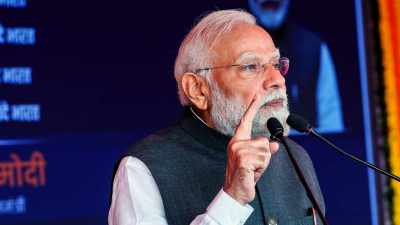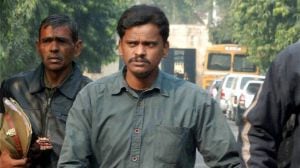Tigers say they’ll change stripes, give up ‘Eelam’
Sri Lanka’s Tamil Tigers, addressing the issue at the heart of two decades of war, said today they would settle for autonomy for minori...

Sri Lanka’s Tamil Tigers, addressing the issue at the heart of two decades of war, said today they would settle for autonomy for minority Tamils rather than a separate state.
Both the government and the Liberation Tigers of Tamil Eelam (LTTE), speaking after a first three-day round of Norwegian-sponsored talks in Thailand, expressed optimism that this time talks would succeed where four previous peace initiatives ended in bloodshed.
But chief LTTE negotiator Anton Balasingham, whose movement took up arms in 1983 to fight for independence in the North and East of the island, ruled out disarmament until a permanent peace had been agreed upon.
Balasingham told a press conference the Tigers were pushing for ‘‘substantial autonomy’’ within a homeland. ‘‘We are now confident the peace process is going to advance and succeed,’’ he said, noting that it was the first time a third party was guiding events. ‘‘A stable foundation for peace has been established and a ceasefire is holding for the last several months,’’ he added.
The Tigers took up arms saying minority Tamils are discriminated against by the island’s Sinhalese majority. Government negotiator G L Peiris said Tigers’ dreams could be achieved without breaking up the country. ‘‘They have stated it categorically on this occasion: a separate state is not what their aspirations are about,’’ he noted.
The talks at a naval base in Thailand — the first direct talks between the two sides in seven years — follow a Norwegian-brokered ceasefire that has kept the guns silent since February after 19 years of war that has killed 64,000 people.
The Norwegian government, which is overseeing the talks, said in a statement the two sides had agreed to meet again from October 31 to November 3, from December 2 to 5 and from January 6 to 9.
As part of confidence-building measures, the two sides agreed to set up a joint task force for humanitarian and reconstruction activities.
‘‘The joint task force will constitute a partnership between the government of Sri Lanka and the LTTE and will have responsibility for the identification, financing and monitoring of urgent humanitarian and reconstruction activities in the North and East,’’ a Norwegian statement said. Balasingham said the Tigers wanted a ‘‘pivotal role’’ in the interim administration in the North and East.
In view of U N conventions on self-determination, he added, it was not relevant to say the Tigers were fighting for an independent state. ‘‘If our demand for regional autonomy and self-government is rejected, and, if the conditions of oppression continue, as a last resort, our people have no option other than to fight for political independence and statehood,’’ he added.
‘‘That will be the last resort under the principle of self-determination.’’ (Reuters)



- 01
- 02
- 03
- 04
- 05




























